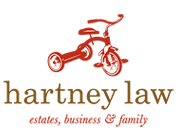Recently, a post on Facebook by a young mom who simply wanted to be of help to people in encouraging them to get their estate planning in order went viral. As of this morning, July 6, 2022, the post, purporting to show people how to do a DIY estate plan had over 69,000 shares with hundreds of comments, largely thanking the young lady for her advice.
When I read the post, I was horrified. Horrified I tell you! As an estate planning attorney with over a dozen years of full-time experience among the many different kinds of families and individuals who need planning, I can tell you that this advice is about as bad as you can get. No personal offense intended toward this lovely lady.
But it was like she was saying, “Hey, looks like your appendix is swollen. Here, let me show you how to take it out yourself!”
While I am certain her intention was good, and certainly her suggestion to get your affairs in order is spot on, the actual advice she gave was extremely limited in scope and applicable to only a small fraction of American families.
Here’s who that advice might work for:
- Families of very modest means without children, real estate, investments, retirement accounts, life insurance, or dysfunctional family issues.
So if you fall into this category, by all means, take her advice.
Here’s who that advice would not work for and why her suggested plan elements would not work:
- Families with children—significant missing elements to the plan;
- Families with real estate—lack of a way to transfer real estate outside of probate;
- Families with assets over about $250,000—failure to take into account the various types of assets people can own beyond checking or savings accounts;
- Families with no children—failure to take into account who the ultimate beneficiaries might be and what impact inheritance might have on them such as losing Medicaid or disability payments;
- Families with complex relational dynamics—failure to take relationships and mental/emotional impact into account when distributing to heirs;
- Single people and widows/widowers—failure to counsel people through the complex decisions unique to single people, particularly when they have few or no family members who could serve as fiduciaries and agents.

The post claims that you can avoid probate simply by having a Will and by using TOD/POD beneficiaries on your bank accounts. Using a Will as the cornerstone of a plan virtually ENSURES probate must happen. A Will is the document with which probate is opened. In this case, it is simply called a “testate” estate, meaning a probate estate governed by a Will. The Will merely replaces the provisions of the states’ probate statutes in determining who the heirs are and how they will inherit. When someone dies without a Will, that is called an “intestate” estate, meaning there is no Will and the state’s statutes will determine heirship. In either case, a probate almost always has to be opened!!!
Her suggestion to use TOD/POD beneficiaries to exclude accounts from the probate estate is only partially accurate! In theory, the TOD/POD beneficiary would be entitled to get the contents of the account directly, without probate having to occur.
But her advice fails to take into consideration that TOD/PODs:
- Don’t work with real estate;
- Don’t necessarily avoid probate and can sometimes force one to have to be opened;
- Accounts can be clawed back into probate if creditors of the estate open a proceeding to get their debts paid by the estate;
- Family members may wish to access account records for various reasons such as searching for hidden assets, life insurance premiums paid, subscriptions, debts, or even things more nefarious like the family member having a second life or family.
In much the same way that I’ve taken issue with financial advisors and bankers telling people to put their adult kids on their accounts or to put minor children’s money in a UTMA account, I take extreme issue with this post. It is given by someone who has little or no experience in estate planning who has zero clue about the downstream impacts of each decision–which can be counterintuitive, complex, and confusing. Estate planning is like surgery, not like family practice. It pays to have good advice in the long run and good advice costs money. So, stop being cheap! An estate plan should cost you about the same as a short family vacation or the amount you spend on the holidays. It should last you about 7 to 10 years, which, when annualized, is a fraction of your overall family budget but can save your family immense time, money, pain, and heartache in the already challenging situation of a loved one’s death.
In short, please, please, please do not take legal advice from:
- A random but well-meaning stranger on social media; or
- A financial planner; or
- A real estate agent; or
- A teller or manager at your bank; or
- A clerk at the county clerk and recorder’s office; or
- A doctor or the front desk person at a doctor’s office; or even
- A general practice attorney who doesn’t do estate planning every day!
Please consult a bona fide estate planner. Don’t try to DIY this, but definitely do some research. Find someone who knows what they’re doing. Find a real estate planner in your area by searching the “Find a Professional” feature on the estateplanning.com website or by searching “estate planning attorney + (your town name)” on the internet and reading their reviews.

 A later-in-life attorney, Martha Hartney opened the practice in 2010 to serve the people she loves because she is committed to helping moms and dads bring their greatest gifts into parenting fearlessly and with joy and making sure children are completely cared for if something happens to their parents.
A later-in-life attorney, Martha Hartney opened the practice in 2010 to serve the people she loves because she is committed to helping moms and dads bring their greatest gifts into parenting fearlessly and with joy and making sure children are completely cared for if something happens to their parents.
